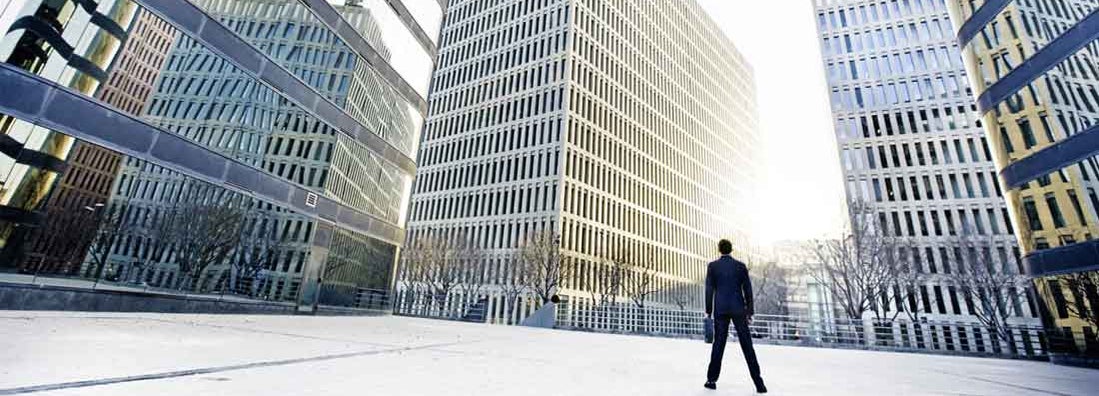Premises Liability Insurance
(Is Your Business Always Responsible for Injuries on Your Property?)

All business owners, no matter how many precautions they take, are at risk for liability claims. Liability claims can arise from injuries or property damage that occur on business property.
Our independent agent matching tool will find you the best insurance solution in your area. Tell us what you're looking for and we'll recommend the best agents for you. Any information you provide will only be sent to the agent you pick.
The most common lawsuits against business owners are from customers or other guests who slip, fall, or otherwise sustain injuries while on their property.
These types of incidents happen frequently in grocery stores and other retail stores, and can happen just about anywhere. Injuries and property damage can happen in parking lots, common areas of apartment buildings, hotel or office lobbies, hallways, and leased office spaces.
As a business owner you are expected to take reasonable care to protect visitors to your business. You aren’t expected to protect people from hazards that you don’t know about or cannot reasonably anticipate.
Most visitors to your business will fall into one of three categories:
- Invitee: Someone who is invited onto the property (e.g., a customer). Invitees can expect that you have taken reasonable precautions to ensure their safety.
- Licensee: Someone who is permitted to enter the property, but has not been invited (e.g., delivery persons, utility workers). Licensees are aware of certain hazards, and cannot expect that the highest level of care is given to their safety. In fact, they may actually contribute to some of the hazards.
- Trespasser: Someone who is neither invited nor permitted to enter a property. Trespassers (e.g., burglars or vandals) have a very limited assumption of safety.
If you are legally required to maintain the safety of a property and a visitor is injured or their property is damaged, you can be held liable to financially compensate the visitor for damages.
The extent of your liability will likely depend on what category the visitor falls into. If a burglar falls through your roof and is injured while attempting to break into your business, you likely won’t have to compensate them (a trespasser) for their injuries.
How Can Insurance Help?
Commercial general liability (CGL) insurance is an essential part of every business owner’s insurance portfolio. It protects you and your business from claims of injury, property damage and negligence related to your business activities.
One of the most essential parts of a CGL policy is premises liability coverage. This portion of your commercial general liability policy offers bodily injury and property damage coverage related to the ownership or maintenance of business premises.
Every business owner has some type of premises liability exposure. Any type of slip, trip or fall can lead to minor injuries, or worse. A customer, vendor, or guest can trip on a turned-up carpet, fall over an exposed cord, or sit on a piece of furniture that you didn’t know was broken and wind up on the floor.
What if an employee leaves a step stool in an aisle, causing an elderly person to fall and break a hip? All of these situations require premises liability coverage to help pay for the injured person’s medical expenses, and to help you pay for your legal defense if you are sued for additional damages.
Grocery stores are prime examples of the need for premises liability insurance. Produce departments often have wet floors, dropped items, and floor mats that can turn into trip-and-fall hazards.
Most grocery stores go to great lengths to maintain the safety of their stores with non-slip floors, secure shelving, and signage warning customers of potential dangers. Nonetheless, accidents can happen and people can get hurt.
Any injury on your business premises, no matter how minor, can result in a lawsuit. The costs associated with defending yourself and paying damages can be devastating for your business. Premises liability coverage gives you—and your guests—the protection you need.
Premises Liability Insurance Exclusions
Remember that premises liability insurance does not cover every way that a visitor to your business can be hurt. If, for example, you are in the medical profession and you injure someone in the course of providing medical care, it would not be covered under your premises liability coverage.
Rather, you would need professional liability insurance, or errors and omissions insurance, to cover this type of incident.
Premises liability insurance also does not cover:
- Employee injuries
- Damage to your own business property (from fire, vandalism, theft, etc.)
Be Careful with Shared Properties
Premises liability coverage can become more complex when maintenance and control of a property is shared between a landlord and lessees. A grocery store may not own the building it occupies, but it does have an interest in ensuring that the parking lot (that it does not own) is free of hazards.
After all, the grocery store owns the grocery carts that are probably the biggest culprits in parking lot property damage and injury cases. The grocery store owner understandably wants to control the parking lot and try to mitigate the hazards to its customers when they are entering and exiting the store.
In these cases, it is common for the landlord and lessee to explicitly spell out in their lease which party is responsible for maintaining common areas so that in the event of an injury or property damage, the appropriate party is held responsible.
In addition, the lease also lets both parties know who is responsible for covering premises liability claims (with commercial liability insurance) in order to avoid disputes later on.
In an office building, lessees (e.g., a medical practice) often only have to have premises liability insurance for their leased space. If a patient slips and falls in the lobby five stories below, the landlord will be liable.
If a lessee has no contractual obligation (via the lease) to maintain a common area, then it cannot be held liable for damage, nor does it have to purchase premises liability insurance to cover it.
How to Find Premises Liability Insurance
Every business owner needs insurance to protect visitors who are injured on their property. Premises liability coverage, as part of a commercial general liability policy, provides the needed protection. Business owners should work with an independent agent who has experience working with their type of business.
Our independent insurance agents can obtain quotes from multiple insurance companies, so you can compare quotes and coverage and find the best business insurance for your needs and budget. A local independent agent is waiting for your call today.
